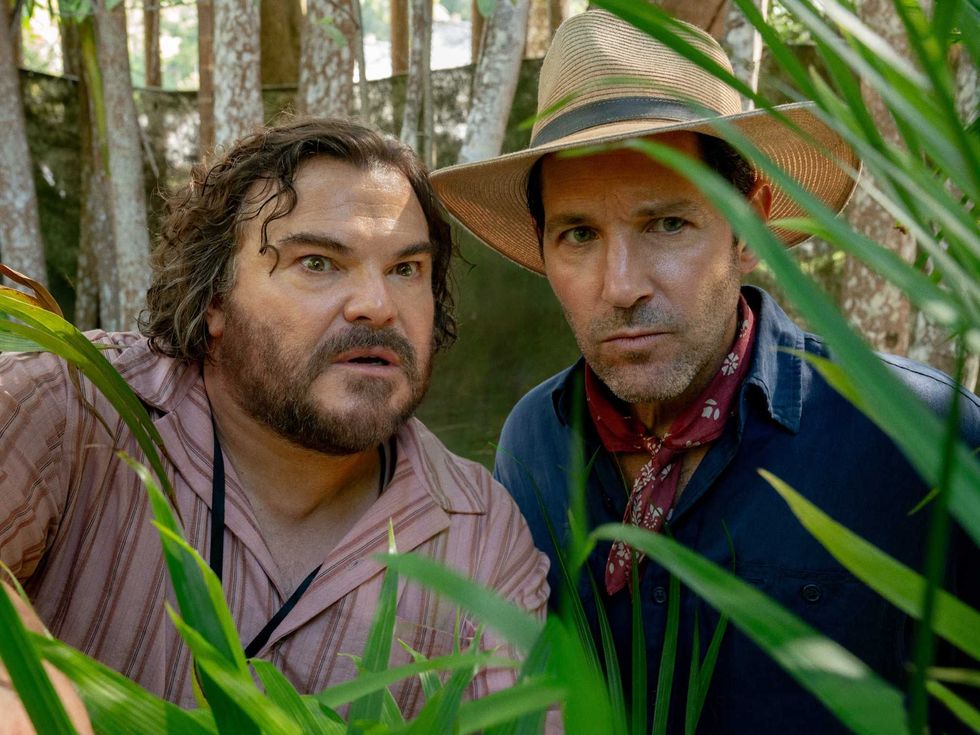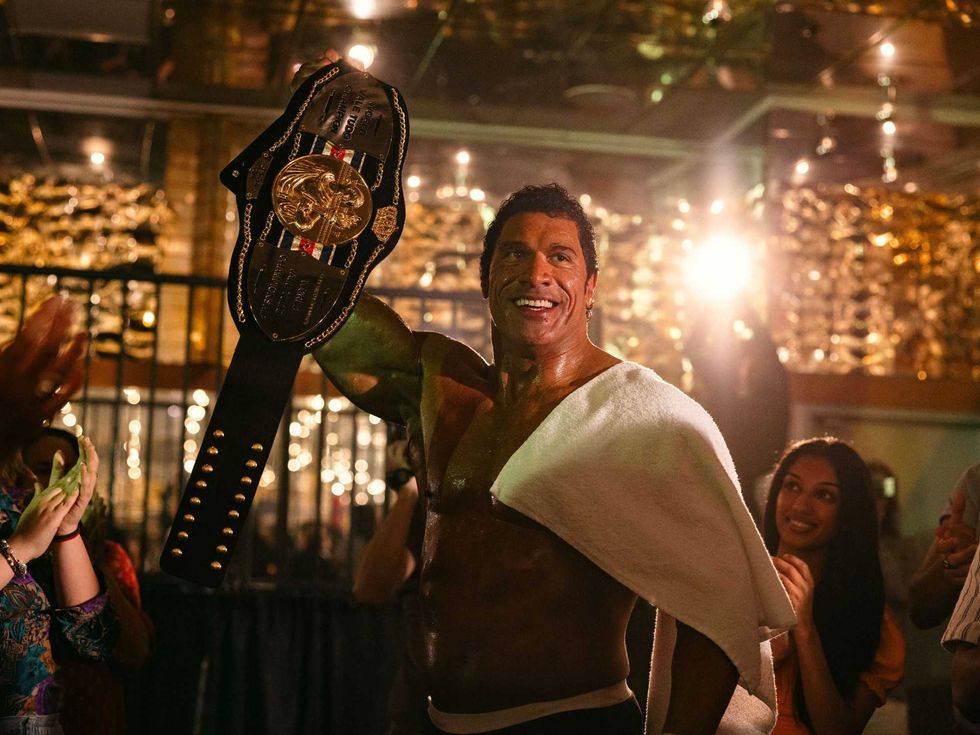QA
His music is played at weddings, funerals & Borat, too: Goran Bregovic has thatfree-spirited Gypsy feeling
 Goran BregovicPhoto by Andrew Shpak
Goran BregovicPhoto by Andrew Shpak Goran BregovicPhoto by Nebojsa Babic
Goran BregovicPhoto by Nebojsa Babic
There's something about the free spirit of what we associate with culture and customs of the Gypsies that spans and resonates with just about everyone. Maybe it's the romantic appeal of the unrestricted passionate stereotype combined with a dash of rebellious anti-establishment sentiment that draws us into our own idea of the raucous lifestyle, true or not.
Doesn't everyone want to party, in full abandonment, until the cows come home?
That seems to be the experience of anyone attending one of Goran Bregovic & His Wedding and Funeral Orchestra, at least as far as a concert hall is concerned. You may not know music of the Balkans, you may not know the language, but you will respond to the visceral rhythms, harmonies and affect.
The music mingles sounds from a myriad of different traditions — Jewish, Catholic, Bulgarian, Bosnian, Serbian, Romani and Muslim, among others — to create a mishmash of joyful tunes that are irresistible.
At the helm of the ensemble is Sarajevo-born Goran Bregovic, who is known for the musical scores of Underground, Arizona Dream, Time of the Gypsies and Borat.
In between travels and concerts, we emailed with the busy leader to learn about his upcoming appearance in Houston, set for 8 p.m. Tuesday at Jones Hall via the Society for the Performing Arts.
CultureMap: Talk a little about what a funeral orchestra is in the Eastern European tradition. We can relate to wedding music, after all, it's a joyous occasion.
Goran Bregovic: Where I come from weddings and funerals are still the two most important events in one’s life, both on a personal and sociological level. The music that accompanies them is played by same musicians. At funerals they perform the music that the departed person liked to hear during his life. That is where I, as a composer, come from.
CM: What happens at a Gypsy wedding? Other than the obvious, of course.
GB: The notion of time and society is different in Gypsy culture. I always envied my first trumpet player who got married in a village on the Romanian border. His wedding had six hundred guests, it lasted for three days and for which three different bands played.
CM: Gypsy music is contagious. No matter what cultural background, it speaks to many. Why is that? What it is about the music that makes it universal?
GB: The music speaks to our most profound needs. Deep down most of us would like to be a Gypsy. It's a metaphor for that part of the soul which defies gravity. The Gypsies teach us about a traditional system of values when freedom was different and more precious than it is now.
The most characteristic aspect of Gypsy music is its capacity to borrow from every different tradition and culture with which it comes into contact. They believe music belongs to us all so they feel free to steal in the most natural way. Gypsies think nothing of grafting a Spanish harmony onto a Turkish melody with an odd Bulgarian beat.
CM: Let's talk about Borat. Seriously, that movie was offensive to many people. Personally, I thought it was hilarious. Did you worry about your association with a film that everyone knew would be controversially received?
GB: No.
CM: Well, there it is. You've recorded 20 albums! That's a lot. Do you have more in the works? Has there been one that has been your favorite?
GB: I am now finishing my new album Champagne for Gypsies, to be released in 2012. It is meant to remind us of our favorite Gypsy musicians who left a trace in popular culture around the world like Gipsy Kings, Ayo, Florin Salam, Stephane Eicher, also who have accepted to perform on this CD.
CM: At what age did your love for music and performing began? Are there musicians in your family that have influenced you?
GB: My father was an amateur violinist and he wanted me to study violin but that hope did not last long because guitar was easier to learn and I figured that girls preferred guitar players. At 15, I started playing popular music as a professional. At 18 I had my rock n' roll band and went to play in holiday resorts in Italy.
When one is young one thinks that studies of philosophy can give you answers to the fundamental questions one asks oneself. Then one starts to study and only ends up having more questions.
So from age 20 to 24, I studied philosophy and sociology and, at the last minute when I was about to become professor of Marxist Thought — in communist times this is what studying philosophy resulted in — my record The White Button, which stayed on as the name of my band, came out and I became the biggest rock n' roll star in my country and was thus saved from the sad career of a professor.
CM: How would you like people to feel after a concert?
GB: Happy!
CM: Well, there it is again. Short, sweet and to the point.
Presented by the Society for the Performing Arts, Goran Bregovic & His Wedding and Funeral Orchestra's concert is set for 8 p.m. Tuesday. Tickets start at $42 and can be purchased online.











